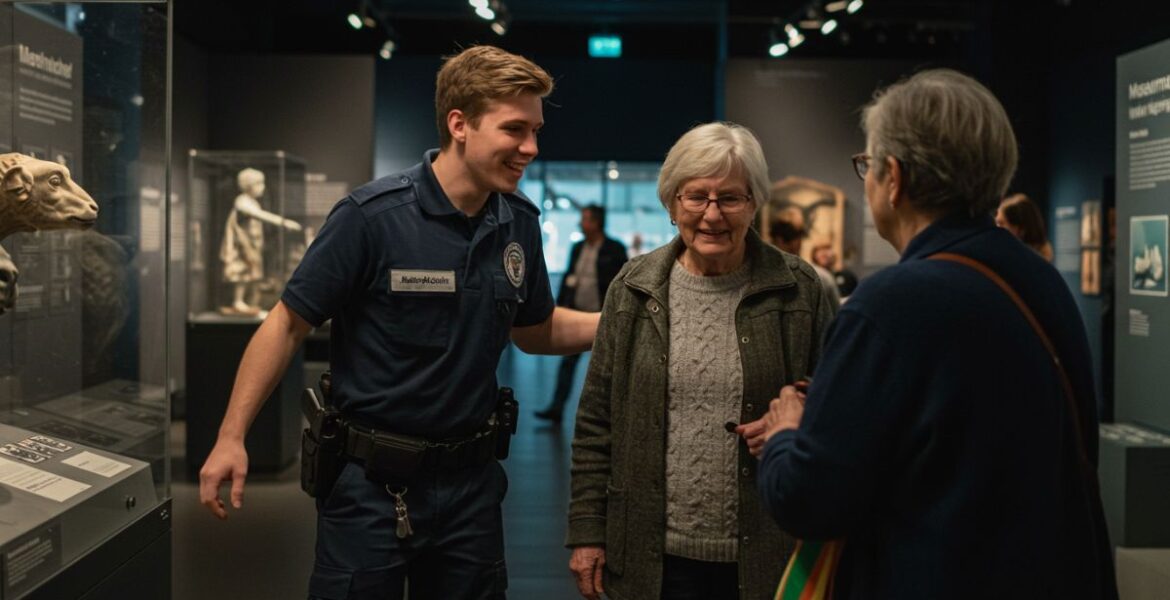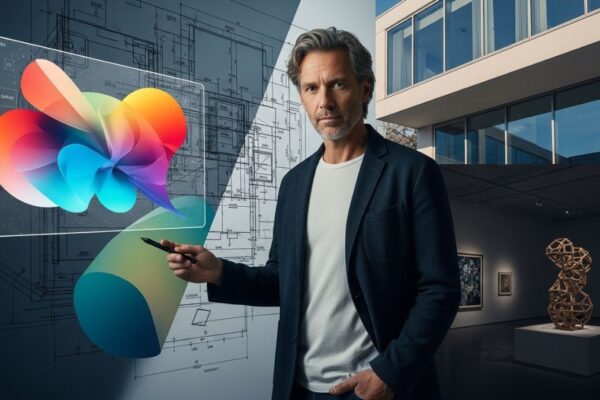The Skills You Need to Succeed as a museumsaufsicht job

If you’ve ever wandered through a museum, marveling at the artistry and history surrounding you, you might have noticed the dedicated professionals who help ensure that every visit goes smoothly. These individuals are known as museumsaufsicht. This role is crucial to creating a welcoming atmosphere where art and culture can be appreciated by all. But what does it take to excel in this position? The world of museums offers not just an opportunity to work with fascinating artifacts but also requires a unique blend of skills and expertise. Whether you’re considering a career change or are curious about what makes someone succeed in this field, understanding the essentials of a museumsaufsicht job will give you valuable insights into this rewarding profession.
Key Responsibilities of a Museumsaufsicht
A museumsaufsicht plays a crucial role in maintaining the integrity and safety of museum collections. One primary responsibility is to oversee the daily operations within the exhibition spaces. This includes ensuring that all artworks and artifacts are properly displayed.
Visitor engagement is another key aspect of the job. Museumsaufsichts interact with guests, answering questions and providing insights about exhibits. Their knowledge enhances visitor experiences significantly.
Monitoring security measures is vital too. They keep a vigilant eye on both works of art and visitors to prevent theft or damage, fostering a safe environment for everyone.
They often assist in organizing events or educational programs related to exhibitions. Collaboration with curators ensures that every detail aligns well with museum goals while enriching community outreach efforts.
Essential Skills for a Successful Career as a Museumsaufsicht
To thrive as a museumsaufsicht, specific skills set you apart from the rest. A keen eye for detail is paramount. You must notice even the smallest discrepancies in exhibits or visitor behavior.
Organizational abilities are equally crucial. Managing schedules, coordinating events, and ensuring that all areas of the museum run smoothly requires strong planning skills.
Adaptability plays a significant role too. Museums often host diverse exhibitions and programs, so being flexible in your approach helps you meet changing demands effectively.
Excellent communication skills foster connections with visitors and colleagues alike. Being approachable encourages engagement and enhances the overall experience for everyone involved.
The Importance of Attention to Detail and Organization
Attention to detail is crucial in the role of a museumsaufsicht. Every artifact, exhibit, and piece of art tells a story. Overlooking even minor details can distort that narrative.
An organized approach allows for efficient management of collections and exhibitions. Proper cataloging ensures items are easily accessible while maintaining their integrity. A well-structured environment enhances visitor experience, making navigation intuitive.
Moreover, attention to detail fosters safety protocols. Ensuring each item is secure prevents potential damage or loss. This vigilance protects cultural heritage for future generations.
In addition, organization aids in communication among staff members. Clear procedures help streamline workflows and minimize misunderstandings.
Being meticulous also reflects professionalism to visitors and colleagues alike. It builds trust in your ability to care for invaluable artifacts while ensuring an enriching experience for all who walk through the museum’s doors.
Communication and Interpersonal Abilities
Communication is at the heart of a museumsaufsicht job. Engaging with visitors, answering questions, and providing insightful information about exhibits are crucial aspects of daily interactions.
A friendly demeanor goes a long way in creating an inviting atmosphere. Visitors often appreciate personal touches when they learn about art or artifacts, making effective communication essential.
Interpersonal abilities also come into play when collaborating with colleagues and managing team dynamics. A museumsaufsicht must work harmoniously with curators, educators, and security personnel to ensure smooth operations.
Listening skills matter too. Attentively hearing visitor feedback can enhance the overall museum experience while fostering a sense of community around shared cultural appreciation.
These skills help build connections that enrich both the museum environment and its patrons’ experiences. Being approachable makes all the difference in turning casual visits into memorable encounters filled with discovery.
Knowledge of Art History and Cultural Heritage
A deep knowledge of art history and cultural heritage is crucial for anyone pursuing a museumsaufsicht job. This understanding allows professionals to engage visitors meaningfully, transforming their experience from passive observation to active appreciation.
Art doesn’t exist in isolation; it reflects societal values, historical contexts, and cultural shifts. Familiarity with these nuances enhances the ability to guide discussions around exhibitions effectively.
Moreover, this expertise can help identify conservation needs or potential issues within the collection. A well-informed museumsaufsicht can spot details that may escape those less knowledgeable.
As custodians of culture, they play a vital role in preserving narratives and educating future generations. Their insights enrich tours and foster deeper connections between art pieces and viewers.
This knowledge also equips them to answer questions confidently, ensuring guests leave with not just memories but insights that linger long after their visit ends.
Technological Proficiency and Adaptability
Technological proficiency is vital for anyone pursuing a museumsaufsicht job. Museums increasingly rely on various digital tools and platforms to enhance visitor experiences. Understanding how to use these technologies can set you apart.
From interactive displays to virtual tours, being tech-savvy allows you to engage with visitors in innovative ways. Familiarity with museum management software also streamlines operations and improves efficiency.
Adaptability is equally crucial in this fast-evolving landscape. Technologies change rapidly, so staying updated is essential. Embracing new tools not only enhances your skill set but also demonstrates your commitment to the role.
Moreover, adaptability extends beyond technology itself. Each day may present unexpected challenges or shifts in visitor needs. Being flexible enables you to respond effectively, ensuring that every guest has an enriching experience regardless of circumstances.
Conclusion:
A career as a museumsaufsicht offers a unique opportunity to engage with art, history, and culture daily. This role not only requires specific skills but also demands a passion for preserving and sharing cultural heritage. By mastering attention to detail, honing communication abilities, and embracing technology, one can excel in this field.
The journey of becoming a successful museumsaufsicht is fulfilling and enriching. It allows individuals to contribute significantly to the appreciation of art and history while fostering connections within the community. Embracing the multifaceted responsibilities of this job can lead to a rewarding career filled with continuous learning opportunities. The skills you cultivate will serve you well in various aspects of life beyond the museum walls, making this profession both impactful and versatile.
You may also like

Jernsenger Unveiled: The Secrets Behind Its Popularity

Marko Oolo: Innovator in Modern Art and Design

Unraveling Arisapes: Their Significance in Modern Culture
Archives
Categories
- Art
- Blog
- Business
- Cryptocurrency
- Cultural
- Cybersecurity
- Digital Marketing
- Digital Media
- Education
- Entertainment
- Fashion
- Finance
- Fitness
- Food
- Game
- General
- Health
- Home improvement
- Law
- Life style
- Modern World
- More
- Online Courses
- Skills
- Social Media
- Sports
- Tech
- Tech Innovation
- Technology
- Travel
- Uncategorized
Leave a Reply